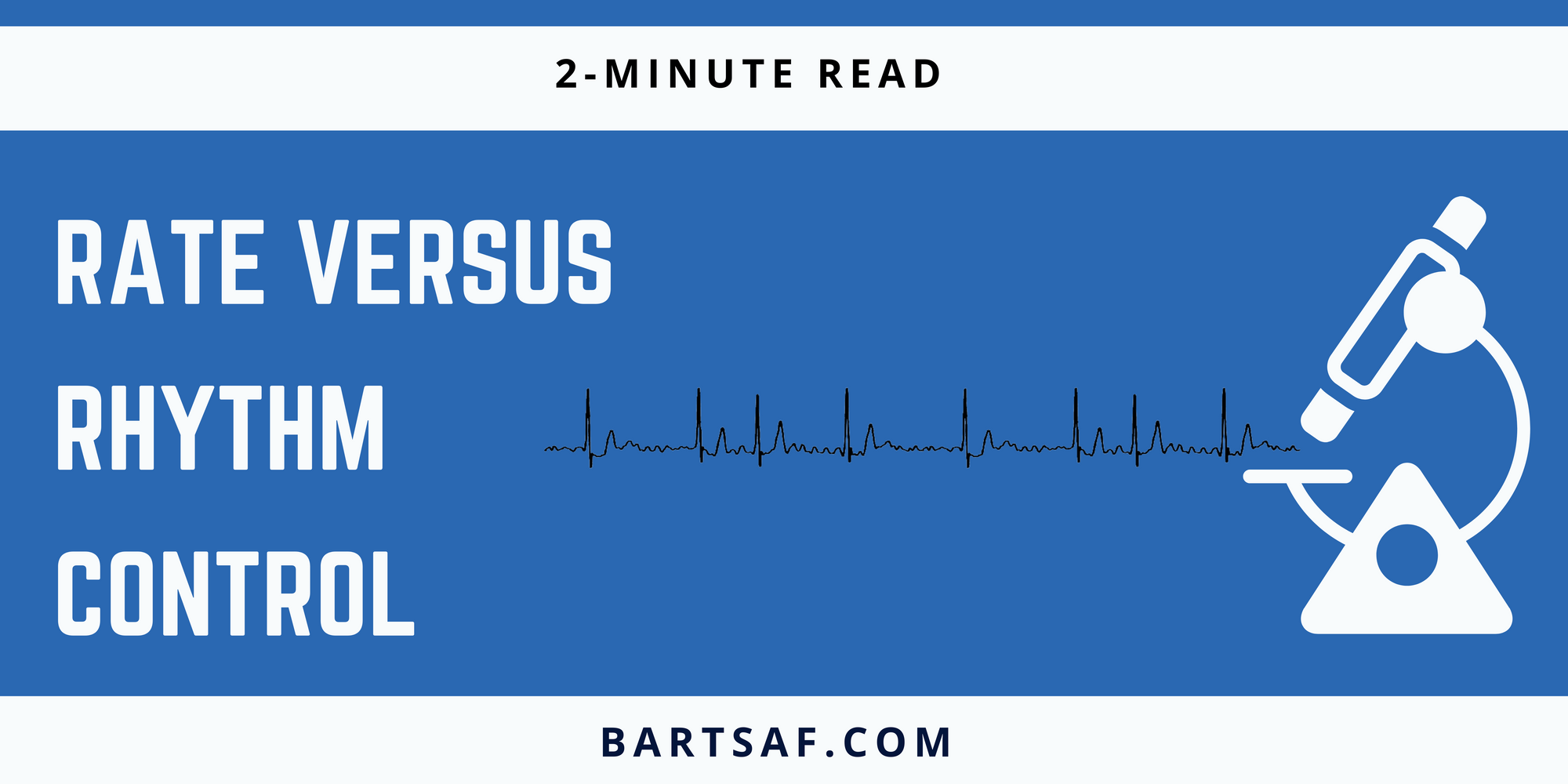Rate vs. Rhythm control

Medications to manage AF directly are categorised as either ‘rate control’ or ‘rhythm control’ treatments. Rate control drugs (such as bisoprolol or diltiazem) work to slow the rate that the heart beats and can make the AF tolerable by managing the fast heart rate. Rhythm control drugs (like amiodarone or flecainide) work to try and suppress the total AF burden. But which is better?
In the next 2 weeks, we’re going to look at some of the rate and rhythm control drugs that many patients with AF have, or are, taking. But today, we’re going to look at a study that compared the two groups against each other- the AFFIRM trial. It was one of the landmark studies that tried to measure whether there was a mortality benefit from suppressing AF with rhythm control, rather than pursuing rate control alone. AFFIRM still stands as one of the largest AF trials conducted, with 4060 patients enrolled. Rhythm control drug choice was at the physician's discretion e.g. amiodarone, sotalol, flecainide as was rate control e.g. beta-blockers (bisoprolol, metoprolol), digoxin or calcium channel-blockers (verapamil, diltiazem). After 5-years, the mortality rate was statistically similar between the two groups- 26.7% in the rhythm group vs. 25.9% in the rate group. This similarity of outcome extended to the rate of hospitalisations and strokes as well.
This study was published in 2002, alongside one that compared rate control to rhythm control using electrical ‘cardioversions’ (shocks given under sedation to reset the heart rhythm) that also showed comparable outcomes. These trials really paved the way for rate control as the first-line choice for patients with AF and rhythm control offered to patients who remain symptomatic despite rate control drugs. So going back to that original question- neither is better or worse, rate control drugs have limited side effects and so can be reasonable to prescribe in the first instance. However, many patients remain symptomatic after rate control and so rhythm control, through tablets or ablation, remains an essential component in AF care today.
